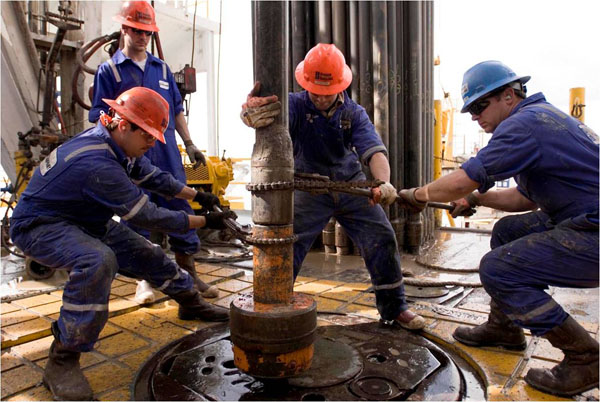- Oranto Petroleum Invests $500m in South Sudan Oil Block
Nigeria’s Oranto Petroleum Limited has said it has signed oil sharing agreement with South Sudan covering the country’s Block B3, earmarking up to $500 million to explore the oil in the region.
In the first three years, Oranto said it would do airborne geophysical surveys in the 25,150-sq km block and assess existing data held by the government and former operators, among other activities.
“Oranto Petroleum will invest $500 million to develop South Sudan’s Block B3, launching a comprehensive exploration campaign starting immediately,” the oil company said in a statement, according to Oriental News.
Since its independence, South Sudan has relied on oil for all income a situation that has significantly compounded the ongoing political and economic instability, due to the fall in crude oil prices.
South Sudan got the lion’s share of the oil when it split from Sudan in July 2011, but its only export route is through Sudan, giving Khartoum leverage and leading to ongoing pricing disputes.
According to South Sudanese officials, production in the past reached as high as 350,000 bpd, but fell after a dispute with Sudan over fees for pumping South Sudan’s crude through Sudan’s export pipeline, which led South Sudan to halt oil production in 2012.
Oil production in South Sudan has, however, been affected by the conflict that erupted in 2013 after a political disagreement between President Salva Kiir and his then deputy, Riek Machar.
Even after restarting production, it never recovered to those levels, but it dropped to 245,000 barrels per day after the outbreak of the civil conflict hindered production in the oil-rich areas of the north.
“We believe the petroleum resources of Block B3 are vast. To reach our target of more than double current oil production, we need committed new entrants like Oranto,” South Sudan’s Minister of Petroleum, Ezekiel Lol Gatkuoth told reporters in the capital, Juba.
“The government is working hard to reinvigorate the petroleum industry in South Sudan by creating an enabling environment for International oil and gas companies to invest and operate. It is up to the oil companies to come in, explore and produce,” he added.
The block is highly prospective, with productive parts of the Muglad Basin to the northwest and estimated reserves in place of more than 3 billion barrels of oil. The block is categorized as low risk, high reward.
Under the EPSA, Oranto will be the technical operator and 90 per cent shareholder of the block, with Nilepet holding a 10 per cent stake.
“It’s an honor to formalize our entry into South Sudan with this EPSA,” said Chief Arthur Eze, founder and chairman of Oranto Petroleum.
“Our company is at the vanguard of African firms exploring and developing African assets. This is the beginning of a long-term collaboration with Nilepet, the people of South Sudan and our partners to bring to light the immense potential of Block B3. Oranto is committed to an aggressive exploration work programme that will benefit all stakeholders,” he added.
The 120,000-square kilometre Block B was reportedly split by the government into the B1, B2 and B3 blocks in 2012. In Block B3, Oranto would work alongside the B1 and B2 partners, which include Total.
South Sudan is an established, world-class petroleum producing region, whose territory includes a large part of the Cretaceous rift basin system that has proved petroliferous in Chad, Niger and Sudan.



 Naira4 weeks ago
Naira4 weeks ago


 Naira3 weeks ago
Naira3 weeks ago


 News4 weeks ago
News4 weeks ago
 Travel4 weeks ago
Travel4 weeks ago




 Naira4 weeks ago
Naira4 weeks ago


 Jobs3 weeks ago
Jobs3 weeks ago
 Naira3 weeks ago
Naira3 weeks ago


 Travel3 weeks ago
Travel3 weeks ago




















